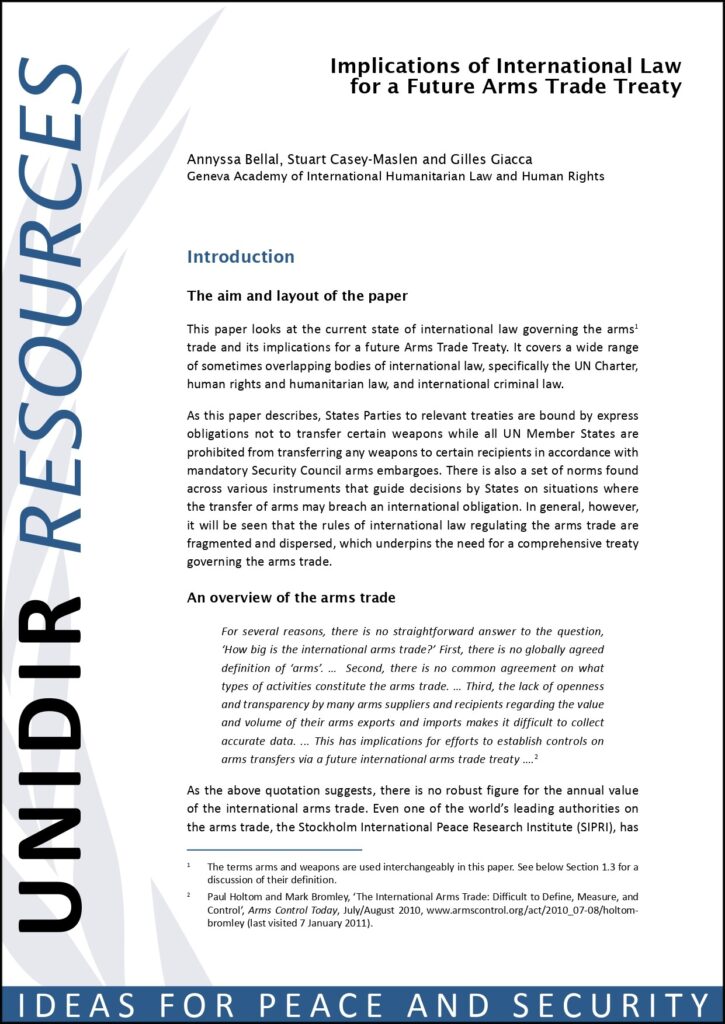This paper looks at the current state of international law governing the arms trade and its implications for a future Arms Trade Treaty. It covers a wide range of sometimes overlapping bodies of international law, specifically the UN Charter, human rights and humanitarian law, and international criminal law.
As this paper describes, States Parties to relevant treaties are bound by express obligations not to transfer certain weapons while all UN Member States are prohibited from transferring any weapons to certain recipients in accordance with mandatory Security Council arms embargoes.
There is also a set of norms found across various instruments that guide decisions by States on situations where the transfer of arms may breach an international obligation. In general, however, it will be seen that the rules of international law regulating the arms trade are fragmented and dispersed, which underpins the need for a comprehensive treaty governing the arms trade.
Citation: Annyssa Bellal, Stuart Casey-Maslen and Gilles Giacca (2012). "Implications of International Law for a Future Arms Trade Treaty", UNIDIR, Geneva.
